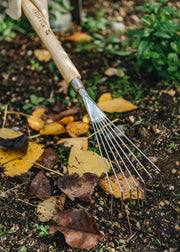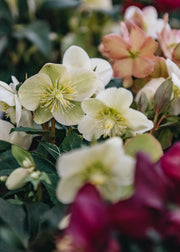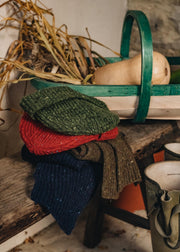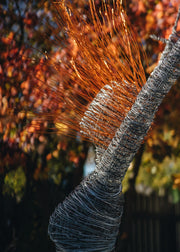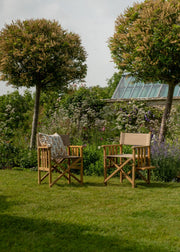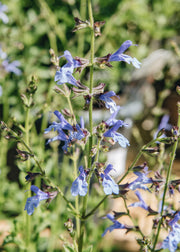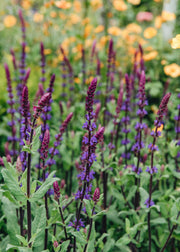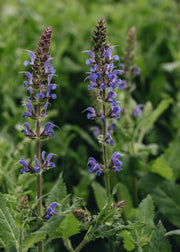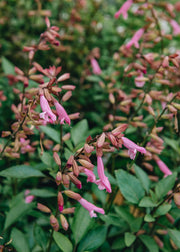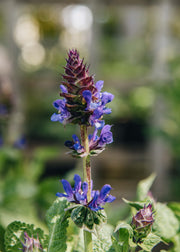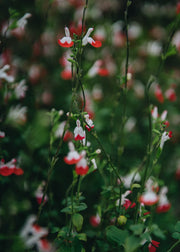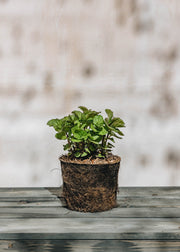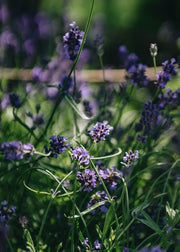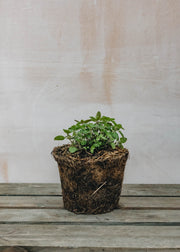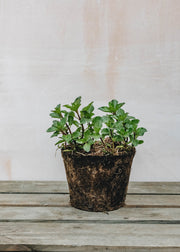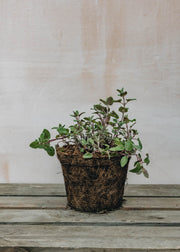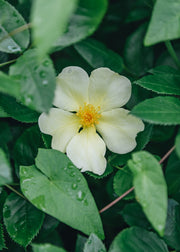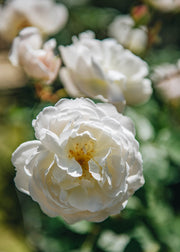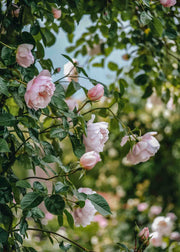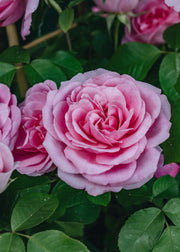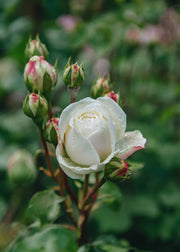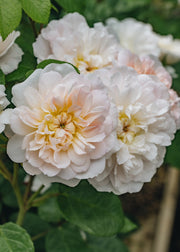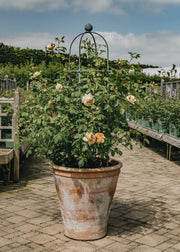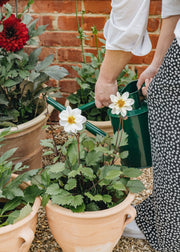Companion Planting for Roses

Companion planting combines the beauty and functionality of different plants to create a harmonious and healthy garden, naturally. By strategically pairing roses with carefully selected ‘companions’, you can enhance their growth, deter pests, all whilst creating a symbiotic community in your garden. Whilst it is wonderful to naturally support your roses with this method, roses are hungry plants and will not do well when in competition for nutrients in the soil. Be sure to plant companions half a metre from your rose and try to use shallow rooted plants when you can.

Nepeta, commonly known as catmint, is a wonderful companion for roses due to its pest-repellent properties. Its aromatic leaves emit a fragrance that deters pests like aphids, Japanese beetles, and ants.
Salvias, long flowering and available in a host of colours, are perfect to complement roses in containers and borders. Whilst attracting a host of pollinators, they are also often attributed to keeping black spot and fungal issues at bay, due to what could be called a 'natural fungicide' released when the essential oils in their leaves are warmed by the sun.
Salvia
We have underplanted our Rose Arbour and Garden this year with Alchemilla Mollis; velvety leaves spread into large clumps, dusted with zingy green flowers. Whilst beautiful, there is also a huge benefit of ground coverage, helping to reduce weeding, but also retaining moisture in your beds.


Alliums make excellent companions due to their strong aroma, which repels aphids, slugs, and other pests that commonly afflict roses. Alliums also release sulphur compounds into the soil, which can improves the overall health and vigour of roses.
Mint is a fragrant companion that can help repel aphids, ants and fleas from the garden. Its aromatic leaves emit a strong scent that masks the fragrance of roses, making them less appealing to pests. Mint also spreads quickly, so you may want to plant in containers above or below the soil line to keep it manageable in the garden. Great choices include Spearmint, Garden Mint, and Peppermint.
Oregano’s aromatic foliage repels pests like aphids and spider mites, whilst its flowers attract beneficial insects such as bees and butterflies, which aid in pollination. Additionally, oregano's spreading habit creates a living mulch, suppressing weeds and helping to retain moisture.
Companion herbs
Calendula, also known as marigolds, attract beneficial insects such as ladybirds and lacewings with their rich nectar source, which in turn helpfully feed on aphids and other pests.

Calendula
Borage is a versatile companion for roses, offering numerous benefits. Its attractive blue flowers are a firm favourite of bees, helping to attract pollinators straight to your roses. Borage leaves contain trace minerals, which when transformed into a mulch or compost, can enhance the overall health of roses.



